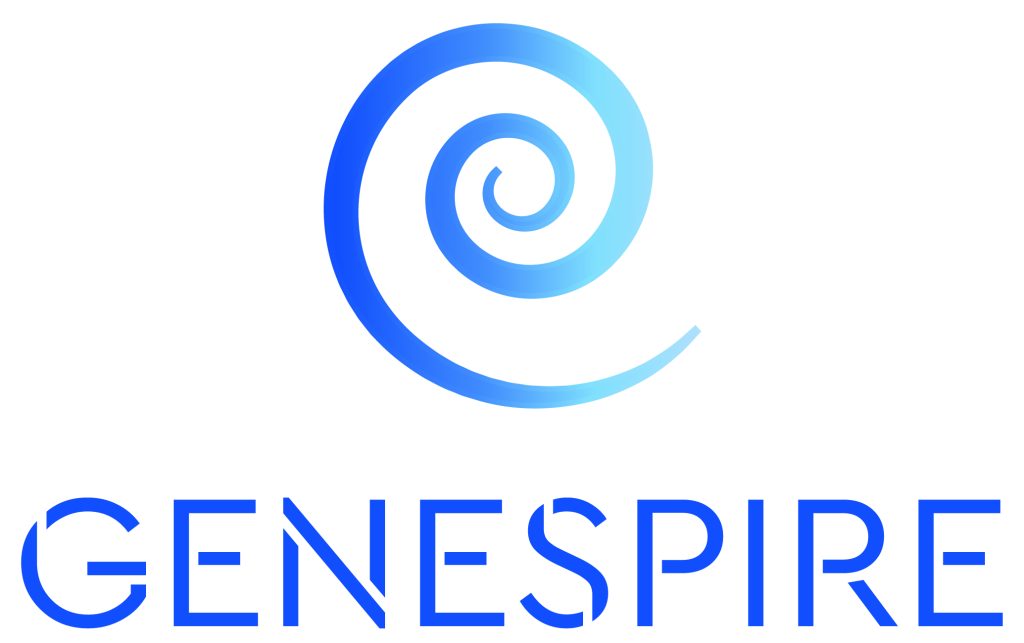PRESS RELEASE
New Preclinical Findings on Dosing for First-in-Human In Vivo Liver-Targeted Gene Therapy for MMA Presented at the ASGCT Annual Meeting
Milan, ITALY – 14 May 2025 – Genespire, a biotech firm focused on developing off-the-shelf gene therapies for children with genetic disorders, recently shared encouraging preclinical data regarding dosing for the first human trial of in vivo liver-targeted gene therapy for methylmalonic acidemia (MMA) during an oral presentation at the 28th Annual Meeting of the American Society of Gene and Cell Therapy (ASGCT) held in Baltimore, MD, USA.
The research discussed at ASGCT evaluated the intravenous delivery of an immune-shielded lentiviral vector (ISLV) that carries a human MUT transgene in a mouse model of MMA. Findings indicated that ISLV gene therapy effectively addresses MMA by introducing a functional MMUT gene into liver cells. A codon-optimized version of the vector (ISLV.MMUTco) demonstrated superior efficacy at lower doses compared to its wild-type counterpart. Testing revealed that higher doses produced proportional improvements, with the lowest dose still providing significant benefits due to the selective advantage of the treated cells. Human-relevant dosing strategies can be derived from studies involving humanized mouse models, which indicated that CD47-enriched vectors yield similar efficacy at much lower doses. These results pave the way for clinical trials in MMA patients.
This research was conducted by Dr. Elena Barbon, Research Scientist, and Professor Alessio Cantore, Group Leader at San Raffaele Telethon Institute for Gene Therapy (SR-Tiget), in cooperation with Genespire.
Alessio Cantore, Group Leader at SR-Tiget and co-founder of Genespire, stated: “We are thrilled to have obtained another oral presentation spot at the esteemed ASGCT conference. These compelling data provide us with further preclinical validation of our immune shielded lentiviral vector (LV)-based gene therapy as we move towards clinical application.”
Karen Aiach-Pignet, CEO of Genespire, remarked: “This data will inform the dosing parameters for our upcoming Phase I clinical trial of GENE202 next year. It’s a thrilling time to be part of Genespire as we feel a significant momentum in developing in vivo gene therapies, particularly following AstraZeneca’s acquisition of EsoBiotec earlier this year, which has generated considerable interest in our efforts.”
Genespire is advancing a novel proprietary class of lentiviral vectors, ISLVs, with its leading candidate GENE202 approaching clinical development for the treatment of methylmalonic acidemia (MMA), a severe genetic condition affecting amino acid and fat metabolism.
For further inquiries, please contact the company.
| Genespire | Tel: +39 02 80896651 [email protected] |
| ICR Healthcare | Tel: +44 (0) 20 3709 5700 |
| Amber Fennell/Ashley Tapp/Jonathan Edwards | [email protected] |
About Genespire
Genespire is a biotechnology company focused on developing off-the-shelf gene therapies utilizing immune shielded lentiviral vectors (ISLVs) for pediatric patients with genetic disorders. ISLVs are intended for intravenous use and allow for lifelong therapy production directly from the liver. The company is primarily targeting inherited metabolic diseases that have a significant unmet medical need. Based in Milan, Italy, Genespire was established in March 2020 by gene therapy trailblazer Prof. Luigi Naldini, Dr. Alessio Cantore, the Fondazione Telethon, and Ospedale San Raffaele. It is a spin-out of SR-Tiget, a leading institute in cell and gene therapy research. For more information, visit www.genespire.com.
About Methylmalonic Acidemia (MMA)
MMA is a rare genetic metabolic disorder often caused by a defective gene responsible for producing the mitochondrial enzyme methylmalonyl-coA mutase (MUT). Individuals with MMA struggle to metabolize particular proteins and fats, leading to the accumulation of methylmalonic acid in the body, which can damage organs like the brain, liver, and kidneys. Currently, no targeted medications for MMA exist, leaving patients to endure significant health issues and reduced life expectancy.



